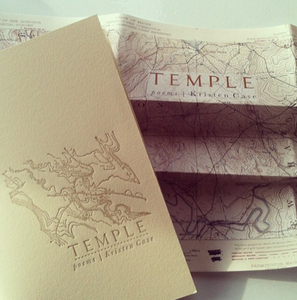Dead Good Poets Open mic at Blackburne House – 04/02/15
– reviewed by James Mcloughlin –
Dead Good Indeed – a homely venue and homelier hosts
David Morrissey once said of Liverpool that ‘it was never a city that criticized anyone for taking a chance’ and I proceeded to the Dead Good Poets Society open mic night (for the first time) with this in mind. Unsure of what to expect, I knew only to leave any stuffy sensibilities at the threshold and try to enjoy what came on its own terms.
Whatever I had anticipated, the evening was to be a joy; an exhibition of lyrical ribaldry, flecked with unmistakable scouse humour, melancholic monologues and observational soliloquies. The event took place in the Garden Café of Blackburne House (just off Hope Street), a cosy, intimate venue tucked beneath a magnificent Grade 2-listed Georgian building. With low-lit ambience to spare, ideal floor space for speakers and performers, and an inclusive seating area, it’s a well-appointed location for such functions.
The evening was broken into three sets, enabling audience and poets to break off for drinks and smokes (as they are wont to do) at intervals. Each poet was introduced by DGPS organisers Sarah Maclennan and Colin Watts; a pleasantly studious format, freeing the speakers from the obligatory intro and allowing them to flow into their verses from the off.
Act 1 – yep, dead good verse and lovely atmosphere.
The night kicked into gear with the wry, Hopkins-esque offerings of Peter. His ‘sprung verse’ patter was a pleasing template used for much of the evening.
The was followed shortly by refined and enchanting explorations of poetry and person by Adonis, a returning traveler, whose What Makes the Measure of a Poet was one of the highlights of the evening, and helped to balance the generally irreverent and frisky tones with an injection of powerful, tingling poesy.
We were then introduced to David, displaying the camaraderie and ease of a regular attendee. His deftly crafted verse and lilting delivery illustrated a supreme confidence of character, getting the audience on the hook from the off. His fierce invective on the Boko Haram crisis in Nigeria was particularly well-observed without becoming preachy or pompous.
This was to round off the first set. We vacated our seats for the bar, and those of such persuasion perused the smoking area outside. It was a good opportunity to gauge the atmosphere, as audience members mingled with performers and quiet, fervent, appreciative chatter filled the room. The layout of the venue was conducive to audience interaction and relaxed performance, and the mood was convivial, enthusiastic.
Act 2 – a bit transcendental and a lot entertaining…
The second set resumed with compere Sarah Maclennan recalling the chaotic impudence of the previous event (a ‘bad poetry’ night), before divulging a pithy, witty ode to poetic struggle and iniquity.
She gave the floor up to Bill, who inspired with his moving paean to the ‘dust-to-dust cinema’ of the circle of life. This was echoed in more mordant style with Joy’s follow-up, an urgent delivery which fondly explored the divergent interests of youth and age, and a pulsing femininity – there was much blue humour, but also some quality poetic insight.
Richard took the floor with aplomb, serving an acerbic sermon against the grotesque spectre of war with lyrical dexterity. This was a poet adept at storytelling, whose garrulous style combined with sometimes grave subject matter to bring the hairs to a stand on the back of one’s neck.
Ali came next, responding briefly to Adonis before pontificating on the subject of time and the New Year, a piece that ebbed and flowed and exulted in itself.
Colin rifled off a drily-observed ode to the River Mersey, with more satisfying syllabic rhymes. This worked well with the theme of the evening and the Society’s stated aims, too; promoting creativity through writing and serenading one of the city’s foremost landmarks (as much as a river can be said to be so).
Bateman then indulged in some meta-poetry to take proceedings in a different direction. With something of the slam poet in his line construction, he was to prove yet again that it would be foolish to predict the trajectory of the night’s contents – another pleasant surprise in a twisting, morphing, thrashing, laughing spectacle.
A further demonstration of the accessibility of these events to, first-time reader Jamie received a roaring applause for his hilarious Celebrity Shits, delivered with venom and humour in equal measure. As I listened, I was reminded powerfully of Manchester filth-bard John Cooper Clarke – not just in style of delivery but also in the arching, cutting way Jamie’s humour was observed.
Another brief interlude followed this short, decisive volley of verse, and I was left for a few moments to ruminate on the successes and failures of the evening thus far. Of the latter, there weren’t many. Whilst there were snippets and junkets of social commentary throughout (as in David’s Boko Haram, for instance), much of the material on topical causes was colloquial or light-hearted. This is not a problem in and of itself, and certainly didn’t lessen the fun of the night (probably the opposite), but personally I would have preferred a little anger or protest alongside the bawdiness and humour.
Act 3 – serious variety and celebrity hilarity
Steve O opened the third set with a vowel-soaring love poem which was short but sentimental, prior to Steve R’s reflection on the tumult and volume of youth. It was then that Reece approached the stage, with no-nonsense vigour. His Isolation was the first poem of the evening to feature obvious, traditional metre and form. The darker subject matter was well-received alongside the levity of other pieces. Overall, the audience was appreciative and open-minded, responding enthusiastically to every type of reading and creating a hospitable setting for the poets.
Hugh and Sarah doubled to herald a short, sharp burst of agonised verse. Chris Clarke, who had been ferreted in her notebook for the majority of the evening, rounded off the readings by expounding on the absurdity of celebrity fads – ‘Gwyneth Paltrow’s Steamed Vagina’ got the reaction of the evening with more irresistible scouse humour.
Yeah, ok, this night is pretty well named…
With laughs aplenty, and more than enough reflective offerings to balance the palate, this was a delightful evening infused with comedy and melancholy and a great deal of talent. Providing an easily accessible platform for new and established poets alike, it hits all the spots. With both entertainment and cultural value, it’s definitely worth finding yourself a seat for the next event. Supplementing these fluid, relaxed occasions with the occasional competitive event is something that could be considered, as it would afford recognition and cultural praise for these undoubted talents and drive quality. And yet, it doesn’t feel all that essential; what’s for sure is that the Dead Good Poets Society has hit upon a winning formula, serving up comedy, culture and commentary through levity and brevity.




